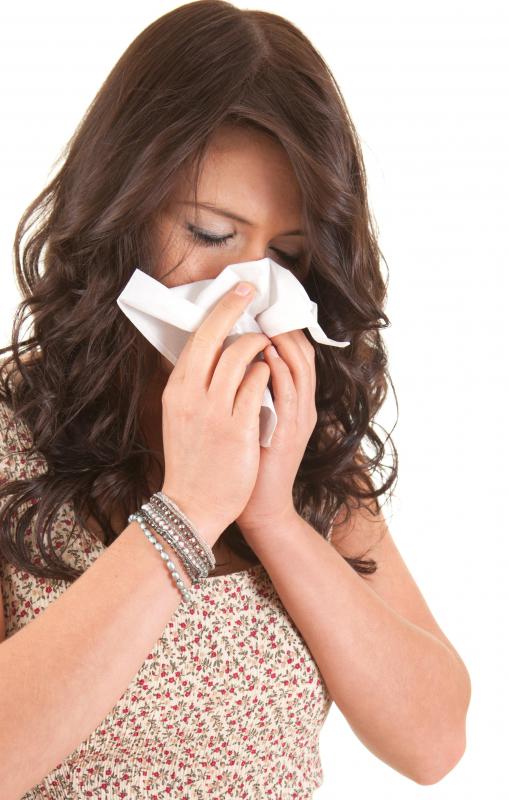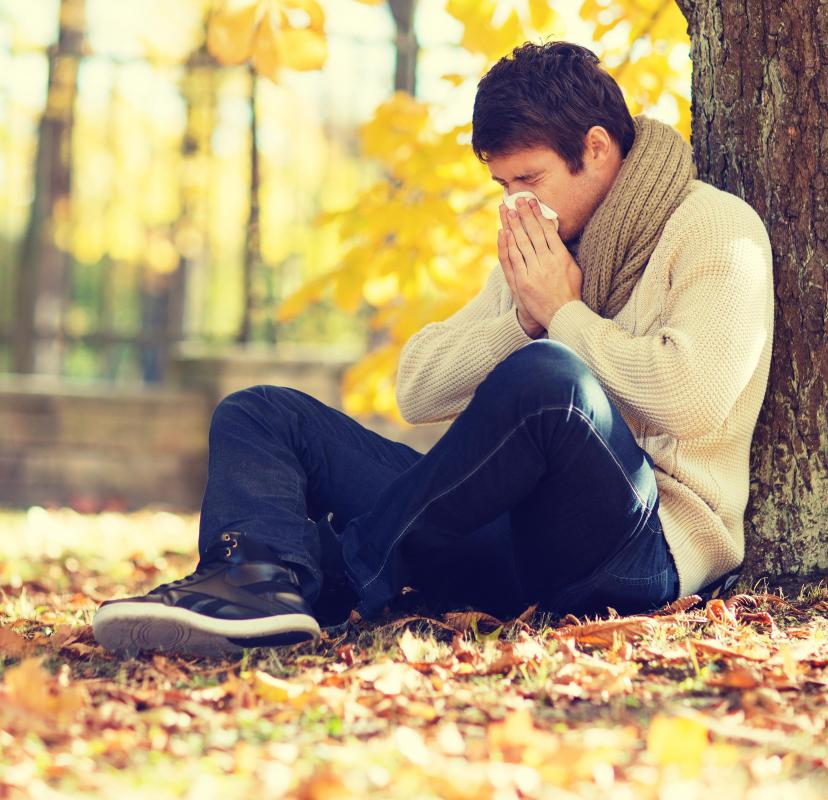At WiseGEEK, we're committed to delivering accurate, trustworthy information. Our expert-authored content is rigorously fact-checked and sourced from credible authorities. Discover how we uphold the highest standards in providing you with reliable knowledge.
How can I Minimize Plant Allergies?
Plant allergies bring sneezing, watery eyes, itchy skin, and mild headaches to unfortunate sufferers. There are many ways to minimize your exposure and reaction to pollen from plants. You can reduce the severity of your symptoms and increase the number of symptom-free days. Slight changes in your attire, habits, landscaping, and awareness will bring fast but lasting relief.
All plant allergies are the result of puffs of pollen circulating in the air. Pollen sticks to your clothing and skin and gets into your eyes, nose, and mouth. You can minimize your exposure by wearing a hat, sunglasses, long sleeves, and long pants. The pollen can even stay in your hair and continue its irritation. Decontaminate yourself after you've been out by changing clothes and taking a shower.

For a more complete regimen to avoid pollen, go outside as little as possible and make your indoor environments pollen-free. Keep air filters in your air purifier, air conditioning, or fans clean. Drive with your windows up and the vents closed. Delegate outdoor chores to a professional service or other members of your household. Don't do things like mow the lawn, rake, sweep walkways, trim shrubs and plants, weed, compost, spread mulch, or even gather vegetables or flowers.

Several national agencies keep track of what's called a "pollen count." This number gives a daily estimation of how much pollen is circulating in the air near where you live. Checking this number warns you if you're encountering a high-risk day. Try taking extra precautions to avoid plant allergies. Pollen is always especially high in the morning, so schedule your errands for the afternoon.

If you have more permanent control over your front and back yard, lawn, and neighbor's landscaping, you can take permanent measures to eliminate the production as pollen in the first place. Only male plants emit large quantities of pollen into the air. Encourage your household, neighbors, and neighborhood planning committees to plant only female trees and bushes.

Assess your own property for high-pollen plants. Trees like maple, birch, cedar, walnut, cypress, elm, hickory, poplar, ash, and sycamore are not preferable. Bermuda grass, sagebrush, and ragweed are common plants that cause hay fever and plant allergies. Keeping your lawn neatly mown will keep grass from blooming at all. Apply herbicide or seed competing plants to eliminate weeds. For example, you could replace a hillside of weeds with indigenous wildflowers that won't create as much pollen.
AS FEATURED ON:
AS FEATURED ON:















Discussion Comments
Is it possible to be very allergic to timothy grasses but not to timothy hay? I'd like to adopt a house rabbit, but I wasn't sure if the timothy hay would be a problem.
Post your comments